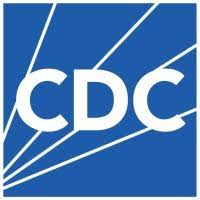
Editor's Note Patients’ social conditions, language, and sleep patterns may play a larger role in surgical recovery than previously recognized, according to three studies presented at the ANESTHESIOLOGY® 2025 annual meeting that took place on October 10–14. Researchers from the University of California, San Diego, found patients facing food insecurity…

Editor's Note More than 200,000 older Americans underwent back surgeries they likely did need, costing Medicare and Medicare Advantage a combined $1.9 billion, Axios October 9 reports. The findings, based on an analysis by the Lown Institute, raise new concerns about overuse of high-cost procedures with limited benefit, as federal…

Editor's Note The Centers for Disease Control and Prevention (CDC) has updated its immunization schedules to emphasize individual-based decision-making for COVID-19 vaccination and to recommend that toddlers receive a standalone varicella (chickenpox) vaccine rather than the combined measles, mumps, rubella, and varicella (MMRV) shot, a CDC October 6 release reports.…

Editor's Note Fewer than one in ten older adults undergoing major elective surgery complete advance care planning (ACP), but a new multisite randomized trial aims to change that. According to a September 23 article published by BMJ Open, the study design for the I CAN DO Surgical ACP trial has…

Editor's Note Older adults with a body mass index (BMI) in the overweight range had significantly lower odds of death after major elective surgery compared with those in the normal BMI category, an August 26 study published by JAMA Network reports. The cohort study followed 414 adults aged 65 years…

Editor's Note Allowing older surgical patients to keep dentures, glasses, and hearing aids until anesthesia and restoring them immediately afterward significantly lowered postoperative delirium (POD) rates, according to a study published in BMC Geriatrics on August 30. The prospective before-and-after trial followed patients aged 70 and older undergoing hip fracture…

Editor's Note Deaths from falls among Americans over 65 have more than tripled in the past 3 decades, raising alarm among geriatric experts and fueling debate about the role of prescription drugs, HealthLeaders September 15 reports. The Centers for Disease Control and Prevention (CDC) recorded more than 41,000 fall-related deaths…

Editor's Note The Centers for Disease Control and Prevention (CDC) expects that COVID-19, influenza, and RSV will together drive a similar level of peak hospitalizations this fall and winter compared to last season, according to a CDC August 25 outlook. The assessment, updated every 2 months, provides a baseline for…

Editor's Note Older age alone should not exclude patients from ambulatory general surgery. A retrospective study published in Cureus on August 27 found that patients over 75 undergoing short-stay general surgical procedures experienced complication and reintervention rates comparable to younger peers, despite higher comorbidity and anesthetic risk scores. The analysis…

Editor's Note The American College of Surgeons (ACS) has released updated Best Practices Guidelines for the Management of Genitourinary Injuries, providing trauma teams with evidence-based recommendations to improve outcomes for patients with injuries to the kidneys, bladder, ureters, urethra, and genitalia. According to an ACS August 26 news release, the…